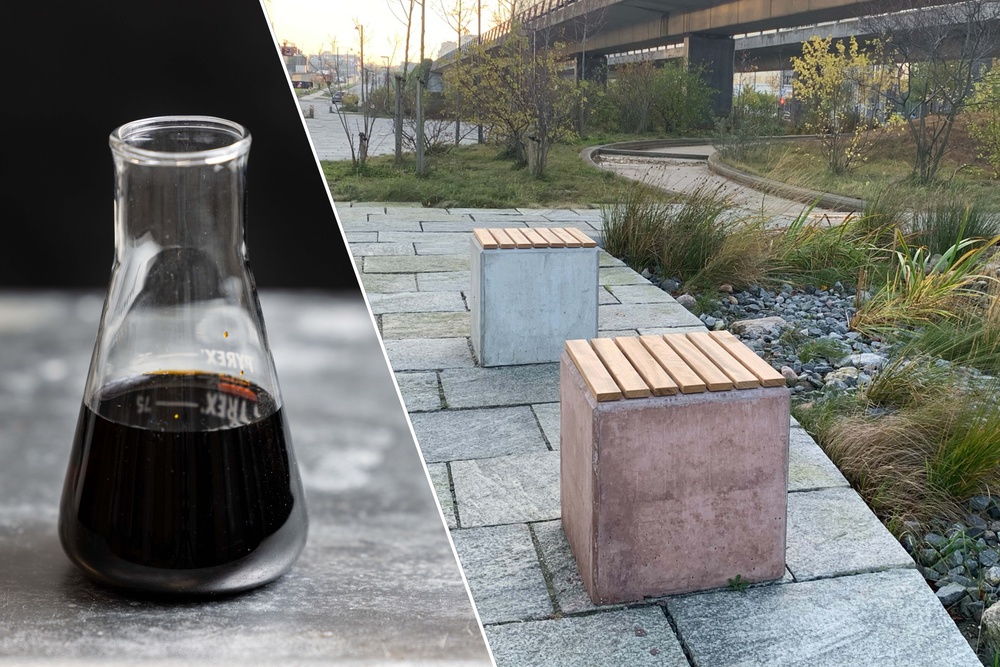New process maximises material recovery in water treatment plants
 In the new add-on process the red color is removed as ferric chloride.
In the new add-on process the red color is removed as ferric chloride.
A research and innovation project funded by the Re:Source strategic innovation has made significant progress in transforming water treatment plants into resource plants. The process, an add-on to EasyMining's Ash2Phos technology, maximises the recovery of phosphorus, iron coagulants, and silicate sand from sewage sludge ash, contributing to circular material use.
The project, which began in August 2022, has tested an add-on process for EasyMining’s Ash2Phos technology in a pilot-scale environment to prepare for large-scale industrial implementation. In addition to the recovery of 90 percent of phosphorus already secured in the main process, over 85 percent of the iron in sewage sludge ash could be recovered, providing sustainable alternatives to traditional coagulants.
"Our process demonstrates that it is possible to significantly increase the recovery of iron, improving circularity in the water treatment sector while reducing reliance on virgin materials," says Cristian Tunsu, Laboratory Manager at EasyMining.
The silica sand is the largest, in terms of volume, co-product from the Ash2Phos technology. The new process, developed as an add-on to the Ash2Phos-technology, recovers iron as high-purity coagulants (ferric chloride) and improves phosphorus and aluminium recovery. The silicate sand left behind is now free of iron compounds, increasing its potential uses. With this add-on, around 85 percent of the iron in sewage sludge ash can be recovered, and testing has shown that the recovered ferric chloride matches the quality of commercial alternatives.
Further collaboration with Feralco and Sydvatten confirmed that the process can produce ferric chloride of high purity, meeting drinking water quality standards. The technology was also found to significantly reduce carbon emissions. A life cycle assessment for the planned Ash2Phos plant I Helsingborg revealed that recycled ferric chloride has a carbon footprint of 75 kg CO2 per tonne, compared to 140 kg CO2 for ferric chloride produced from virgin magnetite.
The cleaned silicate sand, now free from iron compounds, offers a wide range of applications, including as a cement substitute in concrete, offering substantial CO2 savings. EasyMining is currently evaluating a European Technical Assessment (ETA) for these recycled materials.
"We are seeing great interest from sectors like water treatment and construction, where the ability to recover iron and replace cement with silicate sand could lead to considerable cost savings and reduced CO2 emissions," adds Tunsu.
The project, set to conclude in August 2024, has significantly strengthened collaborations within the water treatment sector while opening up for new business opportunities. By enabling water treatment plants to function as resource plants, the initiative allows for the transformation of waste into valuable raw materials for circular use. The project is funded by the Swedish Energy Agency, Vinnova and Formas via the strategic innovation programme RE:Source.
For more information, please contact:
Emma Ranerfors, press officer at EasyMining, +46709272400, press@ragnsells.com
About EasyMining
EasyMining develops and implements sustainable industrial-scale processes that create true circularity. We convert elements from waste into essential nutrients for plant and animal growth. We are owned by Ragn-Sells Group, a privately held corporate group involved in waste management, environmental services, and recycling in Northern Europe. www.easymining.com
